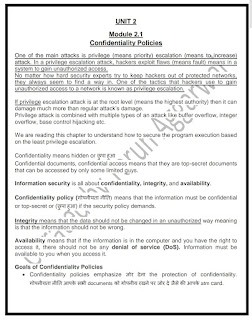Memory
Memory is basically a device that has the capacity to store information. A memory unit is the amount of data that the memory can hold. Besides, we measure this storage capacity in terms of bytes. Moreover, there are different units of memory as per the requirement. Before studying the units of memory let us know about the memory.
Parts of Memory
Primary Memory
This is the internal memory that stores the data and instructions of the CPU. It is volatile in nature (data is lost when the power is disconnected).
The primary memory has two types:
- RAM (Random Access Memory)
As per the name, data can be accessed randomly and quickly.
- ROM (Read Only Memory)
As per the name, we can only read data and cannot write (store) to it.
Secondary Memory
As we know that the primary memory is volatile therefore, we need some devices to store the data permanently so we use some external storage devices for this purpose which we name as the secondary memory. Some examples: CD, DVD, etc.

Units of Memory
The storage capacity of the memory is expressed in various units of memory. These are as follows:
Bit
A microprocessor uses binary digits 0 and 1 to decide the OFF and ON state respectively, of various circuits. Furthermore, a bit is the smallest unit of representation in the binary language.
Nibble
A nibble is a collection of 4 bits.
Byte
A byte is the representation of a group of 8 bits. Moreover, a byte is a unit that expresses any word, symbol, or character in the computer language. Besides, computer memory is always in terms of multiples of bytes.
Word
A computer word is similar to a byte, as it is also a group of bits. Moreover, a computer word is fixed for each computer. At the same time it varies from computer to computer. Besides, the length of a computer word is the word-size or word length. Therefore, a computer stores information in the form of computer word.
Kilobyte
- It is the most common unit of memory which is the smallest of all. But, it is greater than the byte.
- The abbreviation for kilobytes is ‘KB’.
- It contains 1000 bytes. Besides, it is synonyms to kibibytes which contain 1024 (2^10) bytes.
- Megabytes usually measures the size of text documents, graphics of websites, individual files, etc.
Megabyte
- The abbreviation for megabyte is ‘MB’.
- It contains 1000,000 bytes. Besides, it is synonyms to mebibytes which contains 1048576 (2^20) bytes.
- Kilobytes usually measure the size of large files. For example high-resolution images, songs, storage of compact disks, etc.
Gigabyte
- The abbreviation for the gigabyte is ‘GB’ or ‘gigs’.
- It contains 1000,000,000 bytes. Besides, it is synonyms to gibibytes which contain 1073741824 (2^30) bytes.
- Kilobytes usually measure the capacity of storage devices.
Terabyte
- The abbreviation for terabytes is ‘TB’.
- It contains onetrillion bytes. Besides, it is synonyms to tebibytes which contains 2^40 bytes.
- Kilobytes usually measure the capacity of large storage devices, for example, HDDs (Hard Disk Drives).
Petabyte
- The abbreviation for petabyte is ‘PB’.
- It contains 10^15 bytes. Besides, it is synonyms to pebibytes which contains 2^50 bytes.
- Petabytes usually measure the total data storage in large networks or server farms. For example, the data in Google or Facebook data servers is around more than 10 PBs.
Exabyte
- The abbreviation for exabyte is ‘EB’.
- It contains 10^18 bytes. Besides, it is synonyms to exbibytes which contains 2^60 bytes.
- The exabyte unit is so large that it does not even measure the storage of large cloud servers. Rather, it can be used to measure the amount of data transfer over the internet for a certain time limit.
Zettabyte
- The abbreviation for zettabyte is ‘ZB’.
- It contains 10^21 bytes. Besides, it is synonyms to zebibytes which contains 2^70 bytes.
- It can measure a huge amount of data. In fact, the whole data in the world is just a few zettabytes.
Yottabyte
- The abbreviation for yottabyte is ‘YB’.
- It contains 10^24 zettabytes. Besides, it is synonyms to yobibytes which contains 2^80 bytes.
- It is a tremendously huge unit of measurement. Therefore, it has no practical use.
Frequently Asked Questions (FAQs)
Q1. What is memory and units of memory?
A1. Memory is basically a device that has the capacity to store information. A memory unit is the amount of data that the memory can hold.
Q2. List various units of memory.
A2. various units of memory are as follows:
- Bit
- Bibble
- Byte
- Kilobyte
- Megabyte
- Gigabyte
- Terabyte
- Petabyte
- Exabyte
- Zettabyte
- Yottabyte
Read More
- What is Microprocessor and Types of Microprocessor
- What is ROM, Features of ROM, Types of ROM
- What is Cache Memory, Levels of Cache Memory, Types of Cache Memory
- What is Clock Speed, Effect of Clock Speed on the Performance of Microprocessor
- What is Open Source Software, Examples and Advantages
- What is Shareware, Types of Shareware, Advantages and Disadvantages of Shareware
- What is Freeware, Examples, Advantages and Disadvantages
- What is Proprietary Software, Examples, Advantages and Disadvantages
- What is Secondary Memory, Characteristics and Types of Secondary Memory


